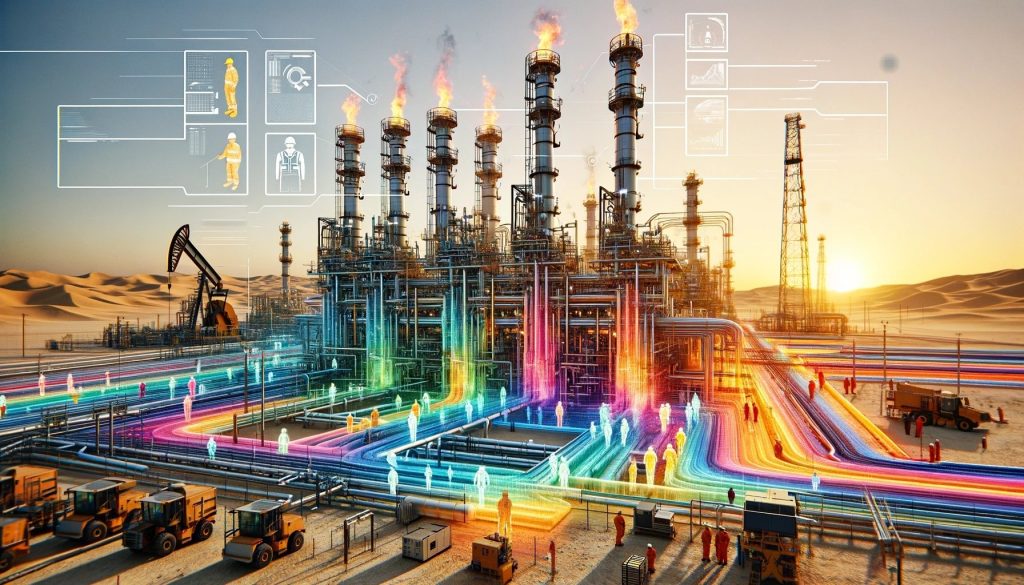This post is also available in:
Digital transformation is a driving force that is rapidly changing traditional ways of working in the oil and gas industry. This article examines the impact of emerging technologies such as the Internet of Things (IoT), artificial intelligence (AI), big data, and digital twins on improving performance and reducing operational costs.
Leveraging IoT and Big Data
By installing smart sensors in equipment and infrastructure, real-time data is collected. This information allows for accurate monitoring of operating conditions, prediction of failures, and improvement of productivity. Using big data analytics allows companies to identify performance trends and make data-driven strategic decisions.
Artificial Intelligence and Digital Twins:
Artificial intelligence plays a significant role in analyzing complex data and optimizing processes. With the help of digital twin models, companies can create accurate simulations of their operations to find weaknesses and strengths. These simulations identify opportunities for improvement and help reduce operational costs.
Benefits and Challenges:
Digital transformation brings many benefits such as increased productivity, reduced equipment downtime, and improved safety. However, there are also challenges such as cybersecurity, high initial investment, and the need for employee training. This article explores solutions to address these challenges and create secure and sustainable infrastructure.


